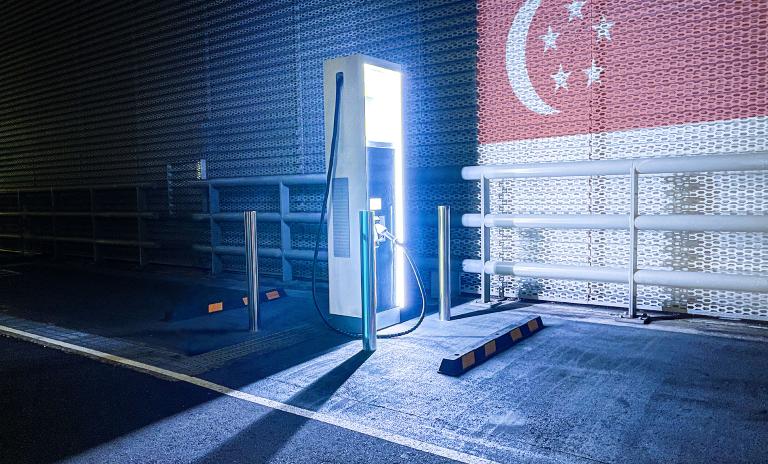EV Charging Index: Expert insight from Singapore
![{[downloads[language].preview]}](https://www.rolandberger.com/publications/publication_image/23_2077_ART_EV_charging_index_deep_dive_Singapore_Cover_2_download_preview.jpg)
EV adoption remains relatively low in Singapore. Discover why and how the public and private sectors are responding in Roland Berger’s EV Charging Index.


By Timothy Wong
Despite a high vehicle-to-public charging point ratio (ie the number of BEV in the car park divided by the number of public charging points), EV adoption in Singapore is still yet to take off. Many of its residents live in apartment blocks, making it harder to install enough private charge points. Both the public and private sectors aim to address the issue.

EV adoption remains relatively low in Singapore, with its 11.8% sales penetration rate well below the global average of 16%. There’s a bit of a ‘chicken and egg’ problem here. The ratio of BEV to public charge points ranks particularly highly (1.81 versus a global average of 15.6) but that’s mainly down to the low number of EVs in Singapore (currently 6,531). Besides, according to our estimates, the ratio of vehicles to private charge points is 1.4, which is lower than the global average of 3.4 but some way above the average of 0.9 for the world’s top three nations. In Singapore, land is scarce and a high number of people live in apartments with shared garages, making it harder to install sufficient private charge points.
Under the Singapore Green Plan 2030, the government aims to work with the private sector to reach 60,000 EV charge points by 2030. This includes 40,000 in public carparks and 20,000 private charge points. Each town established by the Housing & Development Board will be ‘EV-ready’, with approximately 2,000 car parks equipped with charge points by 2025. The government also recently set up EVe, a wholly owned subsidiary to oversee charge point installation across public car parks. It aims to have at least 12,000 in place by 2025.
Several charge-point-operators are setting up cross-border networks throughout neighbouring countries. Charge+ plans to install charging stations across Malaysia, Thailand, Cambodia and Vietnam as well as Singapore. In 2022, City Energy launched Go, offering charge points in Singapore and Malaysia. Meanwhile, Malaysia’s chargEV has entered the Singapore market via a joint venture with LHN Group. The main challenge for these players is to achieve economy of scale – there are already plenty of players involved in a small, early-stage market.
![{[downloads[language].preview]}](https://www.rolandberger.com/publications/publication_image/23_2077_ART_EV_charging_index_deep_dive_Singapore_Cover_2_download_preview.jpg)
EV adoption remains relatively low in Singapore. Discover why and how the public and private sectors are responding in Roland Berger’s EV Charging Index.
Sign up for our newsletter and get regular updates on Automotive topics.